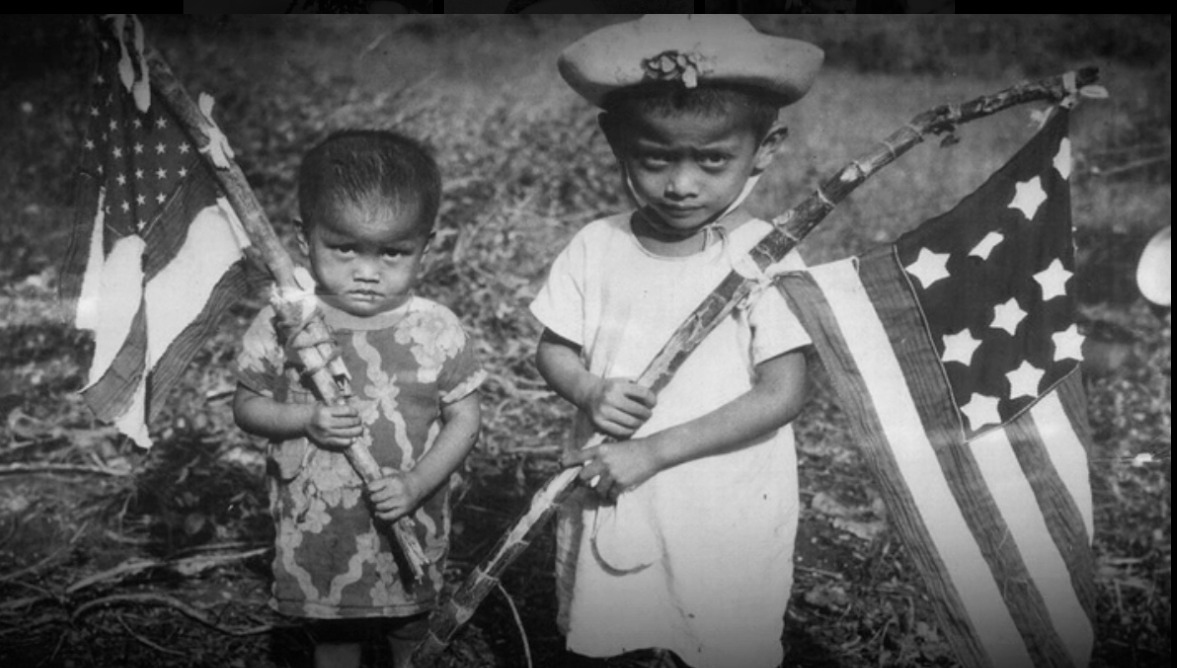North Korea sees it, just as Japan saw it in 1941: Guam is part of the United States, which means attacking Guam is attacking America.
The irony is that while so much of the world sees Guam as part of the U.S., many within the contiguous U.S. do not. The tensions around this reality have come to a boil over the last year as the government of Guam pushed for a plebiscite to change the island’s current relationship to the U.S. As Governor Eddie Baza Calvo said in 2016, “anything is better than being an unincorporated territory.”
Calvo is likely referring to the fact that, under the unincorporated status established by the Supreme Court in the early 20th century, Guam “belongs to but is not part of the U.S.” and is regarded as “foreign in a domestic sense.” Whereas its residents are American citizens and have among the highest rates of participation in the U.S. military—one in eight people have served—they cannot vote for the president and commander in chief, nor do they have a proportional voting delegation in Congress. Due to Guam’s territorial status, veterans from Guam also have access to fewer services and receive less Department of Veterans Affairs financial support than those who live in the states.
To make matters more complicated, while Guam is no longer ruled by a Naval officer and has an elected governor and legislature, American military needs still dictate the use of much of its land and resources. Though families have been fighting since the 1950s for the U.S. government to return property that was expropriated at the height of World War II, one-third of Guam’s territory is still occupied by the U.S. armed forces. The island houses not only major air force and naval bases, but also a parallel universe of beaches, segregated schools, and McDonald’s, all exclusive to military personnel.
“Anything is better than being an unincorporated territory.”
At another level, how much can the people of Guam trust the U.S. to protect not the “Rock,” as the island has been called by the military, but them? The past is no comfort. On December 8th, 1941, a few hours after bombing Pearl Harbor, Japan struck Guam and eventually invaded. The U.S. had advance knowledge that this might happen: Several months before the attack, the U.S. military evacuated the (white) wives and children of the military personnel. The native people of Guam, the Chamorros, were abandoned to their fate for nearly three long years.
This time events are unlikely to play out in the same way. Different from 1941, the U.S. has invested billions of dollars in military infrastructure on the island and currently seeks to expand its presence. It also theoretically has more effective defense mechanisms, and the likelihood that North Korea invades or actually goes through with its threats is low. But a deep concern is that, to the extent that Americans still do not view or treat the people of Guam as citizens, the U.S. will most likely seek to protect what they consider important and valuable to the U.S., not Guam. Here, World War II is again instructive: To avoid “American” casualties, the military ordered its forces to level the capital city of Hagåtña, even if Chamorros were trapped there. Many lost everything.

(Screenshot: War for Guam)
President Donald Trump’s declaration that “North Korea better not make any more threats to the United States,” would suggest that the commander in chief thinks Guam is part of America. But that leads to other ironies: one, the only time that the U.S. concerns itself with Guam is at times of war; and two, while some would argue that Guam has received many benefits from being considered a strategic island for the U.S., including not becoming a colony of another (“worse”) power, its biggest liability in terms of foreign aggression has precisely been that it is U.S. territory.
If the people of Guam are always in the line of fire for Americans, the least that the U.S. can do is to confer all rights to them as citizens while the island’s political status is redefined, include them in decisions that directly affect their lives, and truly consider the effects of U.S. policy on its residents. Chamorros only became American citizens after being brutalized by Japanese forces in World War II because of their loyalty to the U.S. It should not take another horrific assault on the island to realize American policy in relation to North Korea is wrong or to finally understand that Guam is not a game. For the people who live and love there, many of whom consider themselves fully American, it is home.





